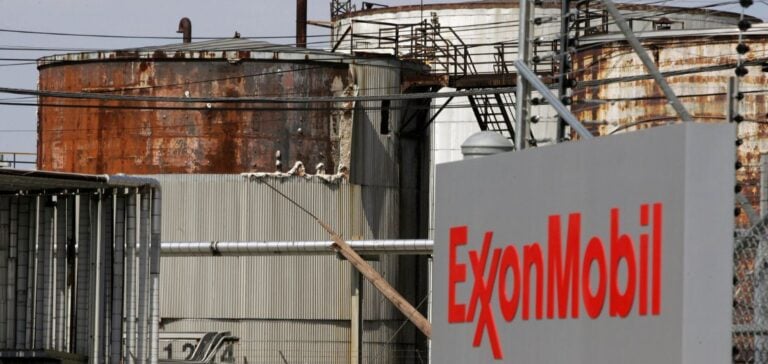ExxonMobil reaches a major milestone by achieving production of 1.2 million barrels of oil equivalent per day (boe/d) in the Permian Basin, three months after acquiring Pioneer Natural Resources for nearly $60 billion.
This strategic operation strengthens the company’s position in one of the world’s most prolific oil basins.
Production Record
In the second quarter, the group achieved record production levels thanks to its key assets in Guyana and the Permian.
“We once again broke production records thanks to our advantageous assets in Guyana and the Permian,” explained ExxonMobil CEO Darren Woods on the company’s second-quarter results conference call.
Including Pioneer, production in the Permian reached 1.2 million boe/d, tripling volumes since 2019.
Expansion in Guyana
In Guyana, oil production averaged 633,000 barrels per day (b/d) in the second quarter.
“We started 2019 with no production and averaged 633,000 barrels per day gross this quarter,” adds Darren Woods. This rapid expansion demonstrates the effectiveness of investments and operations in this region.
The Group expects more than 60% of its production to come from competitive assets by 2027.
“We have also increased the proportion of liquids in our Upstream portfolio to around 70%, the highest level since the merger of Exxon and Mobil nearly 25 years ago,” says ExxonMobil CFO Kathy Mikells.
Projects in Guyana
Scheduled work on the Liza Phase 1 and Phase 2 FPSOs is expected to reduce volumes at the company’s operated Stabroek Block by around 80,000 b/d in the third quarter.
These interruptions are necessary to connect the FPSOs to the pipeline as part of a landmark gas-energy project, which will supply Guyana’s onshore industries.
In partnership with Hess Corp.
and China’s CNOOC, the company is currently producing from three FPSOs off the coast of Guyana.
Work on Liza Phase 2 was completed in mid-July, and work on Phase 1 is scheduled for completion in early August.
The 152-mile pipeline project will be completed in the fourth quarter of 2024, followed by commissioning after completion of the 300-megawatt gas-fired power plant by the Guyana government.
Golden Pass LNG and Perspectives
The group expects the Golden Pass LNG project in Port Arthur, Texas, to begin production in late 2025 following an agreement with contractor Zachry Holdings.
“We are in the process of rebuilding the teams and restarting the project,” says Woods.
Although challenges remain, start-up is now expected by the end of 2025.
The Group produced 4.358 million boe/d of liquids and natural gas in the second quarter, compared with 3.6 million boe/d in the same period of 2023.
This sustained growth in strategic regions and the success of acquisitions such as Pioneer testify to the company’s commitment to maintaining its leading position in the global energy market.






















